Recordings
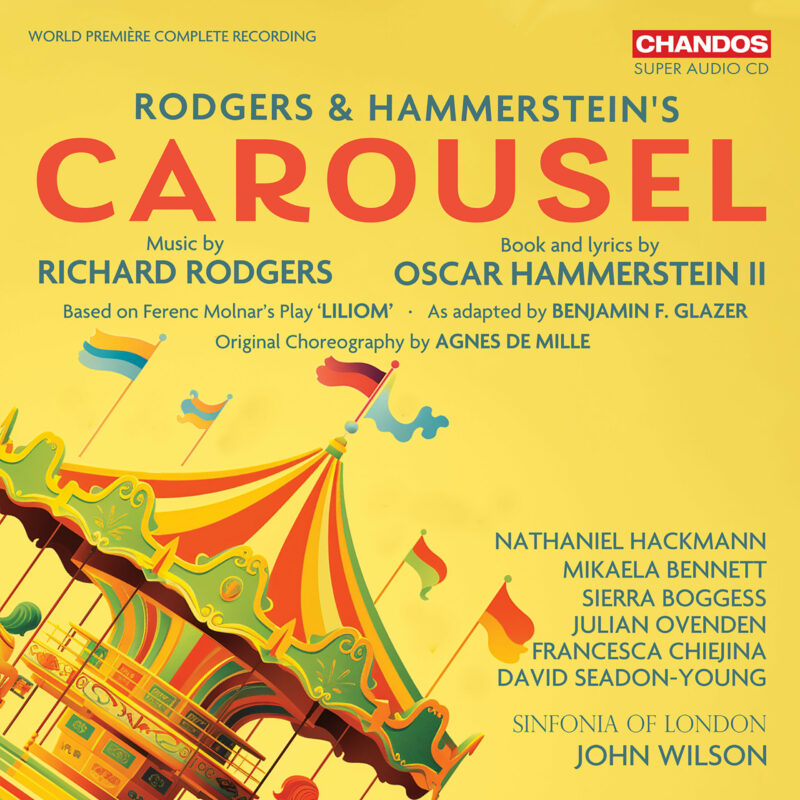
Rodgers & Hammerstein’s Carousel
Coming Soon…
Full album released Friday 13 September 2024. Available to pre-order now.
John Wilson conducts an all-star cast for the second album in Sinfonia of London’s series of world-premier complete recordings of hit musicals. Every note of music played at the first Broadway performance is recorded here in the full thirty-five piece orchestration made by Don Walker for the original production.
An outstanding cast, led by Nathaniel Hackmann (Billy Bigelow), Mikaela Bennett (Julie Jordan), Sierra Boggess (Carrie Pipperidge), and Julian Ovenden (Enoch Snow), also features Francesca Chiejina (Nettie Fowler) and David Seadon-Young (Jigger Craigin). The extensive chorus material is sung by the ‘Carousel’ Ensemble – twentyfour young singers all currently working on stage across London’s West End.
John Wilson comments: ‘Carousel is Rodgers & Hammerstein’s greatest achievement. In it, Rodgers manages to create a score with operatic aspirations and dimensions. Everything in the score serves a dramatic purpose. Even in its texture you can hear orchestral effects that are there to underline the drama’s emotions, whether that’s unease or joy. The drama is amplified by what’s happening in the music.’
Recorded in Surround Sound and Dolby Atmos, Rodgers & Hammerstein’s Carousel will be available on Hybrid SACD and in spatial audio.
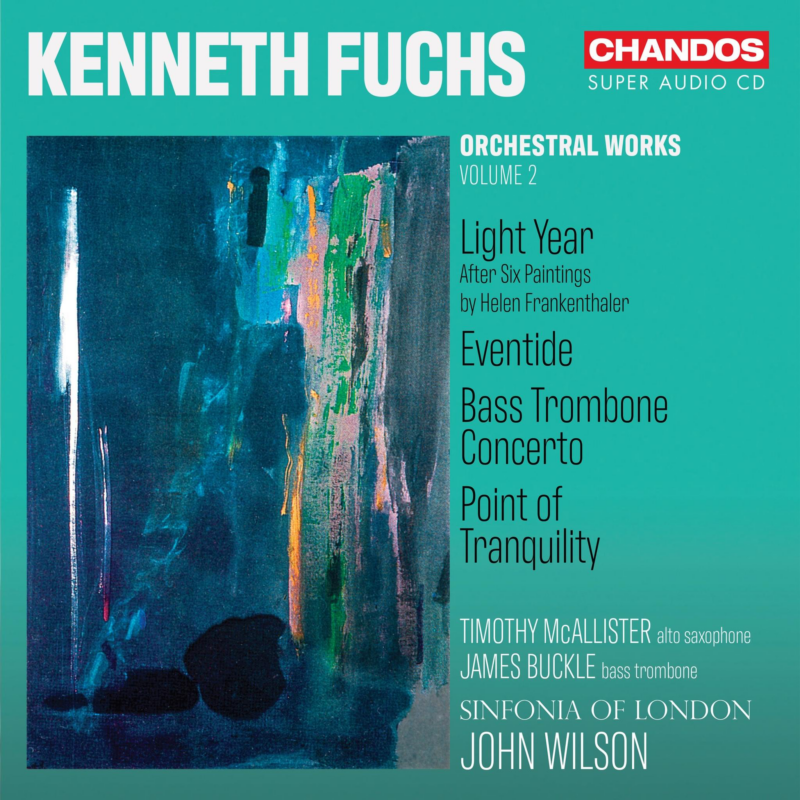
Kenneth Fuchs – Orchestral Works Vol. 2
Sinfonia of London’s second album of works by Grammy Award-winning composer Kenneth Fuchs features four world première recordings. Two of the works feature soloists, with the Bass Trombone Concerto performed by Sinfonia of London principle James Buckle. The work loosely follows sonata form whilst utilising the full range of the instrument, and revelling in its lyrical side. Eventide, for alto saxophone and orchestra, is a re-working of an earlier concerto that Fuchs wrote for cor anglais. Described by the composer as a set of ‘fantasy variations based upon the simple triadic intervals typical of spirituals’, the alto saxophone version was composed for this album’s soloist, Tim McAllister.
Point of Tranquility was originally composed for wind band, but Fuchs then prepared this orchestral version at the request of JoAnn Falletta for her Buffalo Philharmonic Orchestra. The piece is inspired by Fuchs’s reaction to the eponymous painting by Morris Louis. The orchestral suite Light Year is also inspired by a series of paintings, these ones by Helen Frankenthaler. Cast in six movements, the extremely evocative work captures the breath-taking scale and mysterious nature of the universe. Light Year was specially composed for and dedicated to John Wilson and Sinfonia of London.
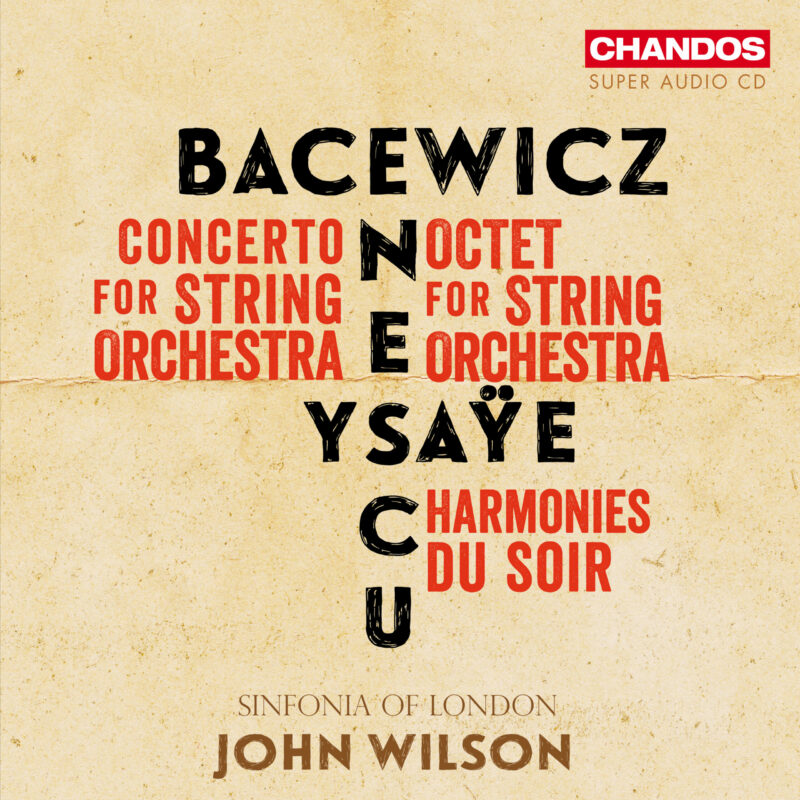
Ysaÿe/Enescu/Bacewicz: Works for Strings
For our fourth album of music for string orchestra, we present a programme of works by three composers from the Franco-Belgian school of string pedagogy, who were all themselves virtuosic string players. George Enescu studied in Paris and Vienna, spent much of his life in France, and was internationally lauded as a concert violinist and conductor in both Europe and America. Much of his music remained unknown after his death – a situation improved thanks to some high-profile champions of his work, not least his most famous pupil Yehudi Menuhin. When Enescu supplied a preface for a new edition of his Octet, in 1950, he sanctioned its performance by a full string orchestra, the form in which we hear it on this recording. Completed in 1924, Eugène Ysaÿe’s Harmonies du soir is scored for string quartet and string orchestra, enabling him to exploit the contrast between intimate and full string sound, a technique inspired by Vaughan Williams’s Fantasia on a Theme of Thomas Tallis. Affectionately known as the ‘First Lady of Polish Music’, Grażyna Bacewicz was an outstanding virtuoso violinist, a formidable pianist, and ground-breaking composer. A great deal of her output was written for strings, including the Concerto for String Orchestra, written in 1948. Often described as neoclassical, the work takes some inspiration from the baroque concerto grosso, but is distinctly modern in its harmonic language and was particularly admired by Lutosławski.
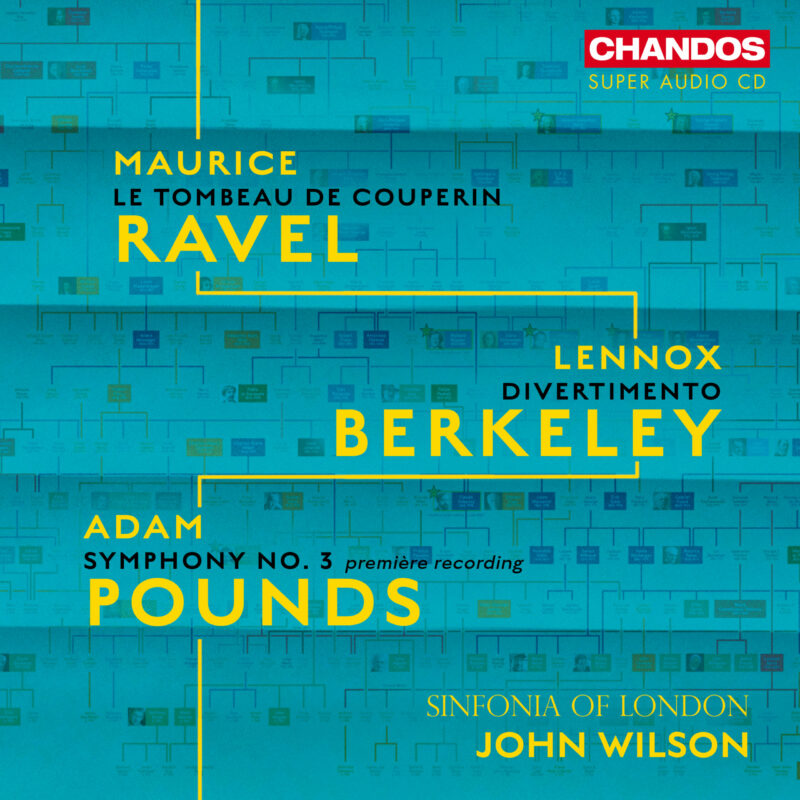
Ravel / Berkeley / Pounds: Orchestral Works
The three composers whose works appear on this album are interconnected: Ravel was a mentor to Lennox Berkeley, and Berkeley to Pounds. Le Tombeau de Couperin marks Ravel’s movement towards neoclassicism, its forms and style a re-invention of ones from the French baroque. Originally written for solo piano, the movements of the suite were dedicated to friends whom Ravel had lost in the First World War. In 1919 he orchestrated four of the six movements (the version performed here). Berkeley met Ravel a number of times in the 1920s, working as an interpreter and tour-guide whilst Ravel was in London. Ravel advised him to study with Nadia Boulanger, which he did, between 1926 and 1932. Commissioned by Sir Arthur Bliss for the BBC Symphony Orchestra in 1942, the Divertimento initially received a mixed reception, but has since found many supporters (including Pounds). The critic Peter Dickinson felt it showed an ‘instinctive and unimpassioned creativeness associated with the French aesthetic, but by no means restricted to it’. Adam Pounds studied privately with Berkeley in London during the late 1970s, and in his own music has perpetuated the firm commitment of the two earlier composers to clarity and accessibility in everything they wrote. His Third Symphony was written in 2021 and is a response to the national lockdowns in 2020 and 2021 prompted by the Covid-19 pandemic. Pounds states that the piece captures the ‘sadness, humour, determination and defiance’ which everyone faced at this time – not least musicians. Scored for relatively modest orchestral forces, the work is dedicated to Sinfonia of London and John Wilson who here give the work its world première recording.
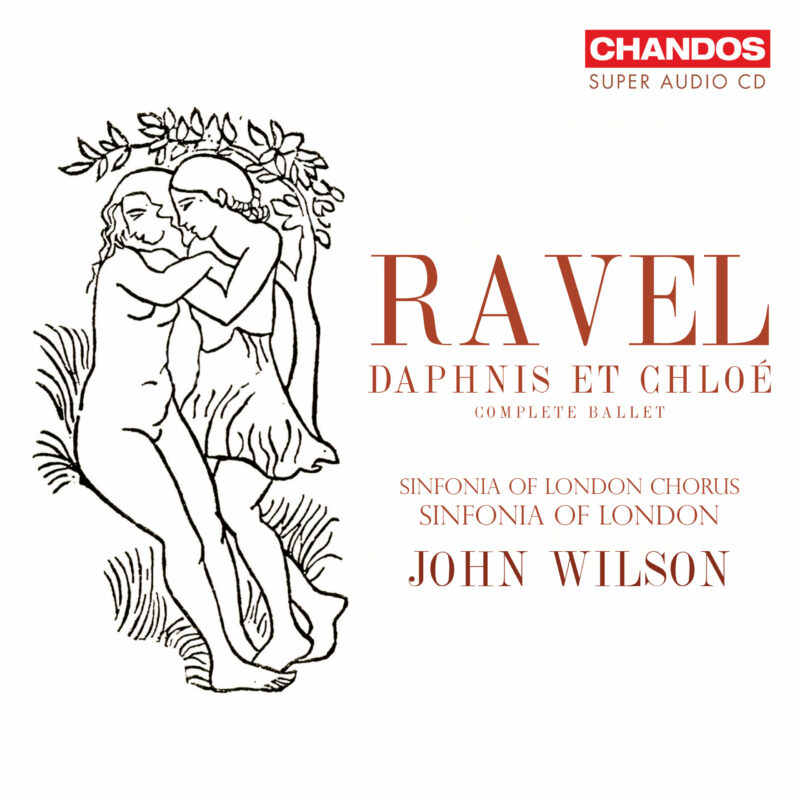
Ravel – Daphnis et Chloé
Ravel’s early masterpiece, Daphnis et Chloé, was commissioned by Serge Diaghilev for his Ballets Russes, and was premièred in the Théâtre du Châtelet in July 1912. Described by Ravel as a ‘symphonie chorégraphique’ (choreographic symphony), the work was performed just twice in that 1912 season, and was given only three more performances the following year. Press reaction was muted, and it is now much more often performed as a concert work than as a ballet.
Daphnis, a shepherd, and Dorcon, a cowherd, dance for the privilege of a kiss from Chloé. Daphnis wins the contest and Chloé’s kiss leaves him in ecstasy. Chloé is kidnapped by a band of pirates; Daphnis prostrates himself before the god Pan. The pirates are celebrating their successful raid in their camp when Pan appears and frightens them all away. Some shepherds find Chloé (with Pan’s help) and reunite her with Daphnis.
This recording uses John Wilson’s new performing edition of the work, a project which Wilson took on during the pandemic lockdown in 2020. He writes: ‘The standard performing materials for Daphnis et Chloé have long been the subject of discussion among orchestral players, conductors, and musicologists. Aside from a mass of errors in the 1913 published full score, the orchestral parts contain hundreds of inconsistencies, omissions, and wrong notes. It became apparent that numerous changes made by Ravel in rehearsals were transferred directly into the parts but not carried over into the full score. I have tried to rationalise such (and other) inconsistencies as best I could to arrive at what is, I hope, a useful practical performing edition in which the parts match the full score in every detail and – crucially, for a work of such complexity – everything is carefully laid out and easy to read.’
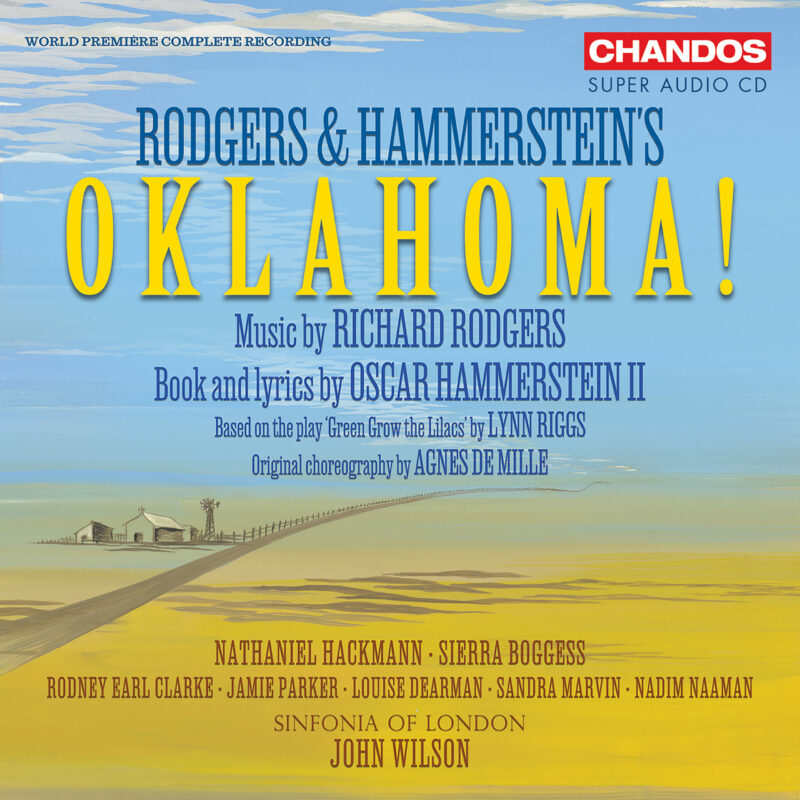
Rodgers & Hammerstein’s Oklahoma!
*BBC MUSIC MAGAZINE 2024 ‘OPERA AWARD’ WINNER*
Sinfonia of London, John Wilson and Chandos Records are excited to announce the release of the world première recording of the complete original score of Rodgers & Hammerstein’s Oklahoma! Released to coincide with the 80th anniversary of the work’s première performance, this is the first recording of the entire score in its original orchestration.
‘Rodgers & Hammerstein’s Oklahoma! is often cited as the seminal work in the history of the musical – the piece which took us from musical comedy to integrated musical theatre where narrative and characters were developed through song and dance. It is astonishing that we have had to wait 80 years for a complete, Overture to Exit Music recording – but here it is: Robert Russell Bennett’s original orchestrations beautifully restored by Bruce Pomahac, with every last instrumental detail intact. To my ears, this great masterpiece in its original instrumental clothing sounds as fresh as the day it was written.’ – John Wilson
Available for digital download and streaming, Double Hybrid SACD – CHSA 5322(2), and Limited Edition Double Vinyl – ABRD 5322(2) (1,000 numbered copies). Recorded in Dolby ATMOS and available in spatial audio.
Featuring Nathaniel Hackmann (Curly), Sierra Boggess (Laurey), Rodney Earl Clarke (Jud Fry), Jamie Parker (Will Parker), Louise Dearman (Ado Annie), Sandra Marvin (Aunt Eller), Nadim Naaman (Ali Hakim), the Oklahoma Ensemble and Sinfonia of London (Leader John Mills), conducted by John Wilson.
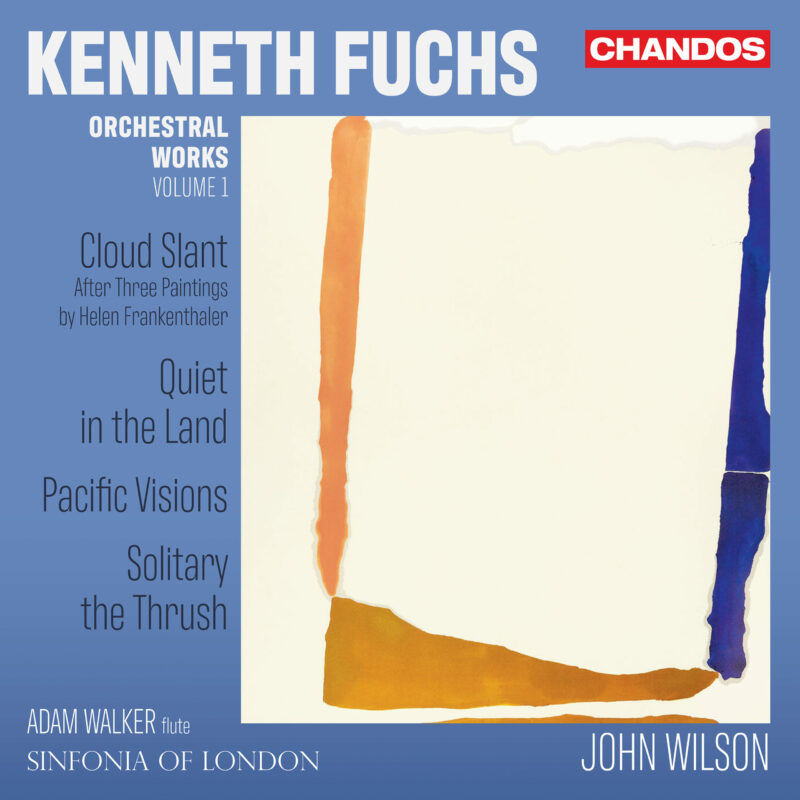
Kenneth Fuchs – Orchestral Works Vol.1
The Grammy-Award-winning Kenneth Fuchs (born 1956) is without doubt one of American music’s leading orchestral composers. His orchestral output encompasses a wide range of genres, from overtures and tone poems to suites and concertos (ten to date, including ones for string quartet, electric guitar, and piano, the last entitled Spiritualist), inspired by a diverse range of subjects, testimony to his wide sympathies and fields of knowledge. His output includes chamber music (including five string quartets), solos and duos, vocal and choral music, and four chamber musicals.
Cloud Slant is a virtuoso orchestral concerto based on three canvasses by visual artist Helen Frankenthaler: Blue Fall (1966), Flood (1967), and Cloud Slant (1968) – not just musical depictions of them but also the composer’s reactions to their artistic sweep and power.
The flute was Fuchs’ first instrument, so it was inevitable that he would compose a flute concerto. However, it was not until 2019 that he set about the task. This recording is made featuring Sinfonia of London’s principal flute, Adam Walker. As is customary of compositions by this composer, the concerto carries a descriptive title, Solitary the Thrush, a reference to lines from Whitman’s elegy for Abraham Lincoln, ‘When Lilacs Last in the Dooryard Bloom’d’.
Commissioned by the Californian Musique Sur La Mer Orchestras, Pacific Visions is scored for string orchestra, and is a single, dynamic movement sub-divided into five sections. Quiet in the Land, a Poem for Orchestra, is a revision of a chamber work which Fuchs composed in 2003, inspired by the rolling prairie of the Midwestern United States and the ‘immense arching sky’ under which it sits, cast against the impact of the Second Gulf War which had then recently broken out.
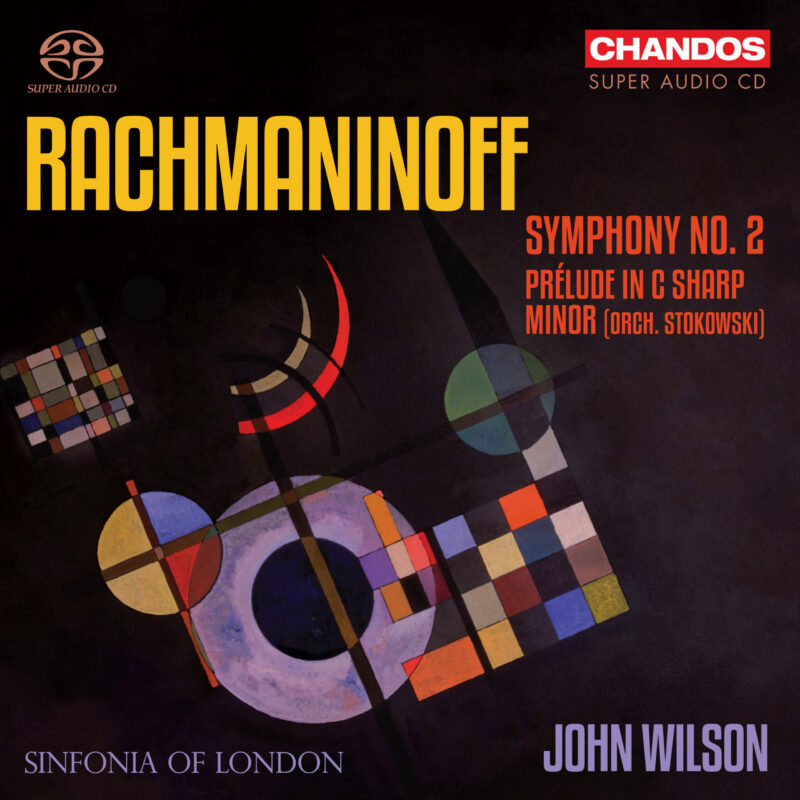
Rachmaninoff – Symphony No.2
The second album in the Rachmaninoff series from Sinfonia of London and John Wilson, the Second Symphony was mostly composed in Dresden – where Rachmaninoff was escaping the political and professional pressures of Russia – in 1906 – 07. An hour’s worth of music, the symphony is one of his largest works after the operas, and is widely viewed as one of his greatest works. It was possibly of some significance to the composer, following the less than auspicious début of his First Symphony (which he withdrew after the première). First performed in St Petersburg and Moscow, conducted by the composer, the Second Symphony was an immediate success with audiences and critics alike, and remains a mainstay of the orchestral repertoire to this day. Rachmaninoff dedicated the score to his teacher Sergei Taneyev, who was a pupil of Tchaikovsky.
Rachmaninoff composed the Prélude in C sharp minor in 1892, originally for piano, at the beginning of his career. Stokowski’s orchestration, performed here, whilst not the only one in existence, is certainly the best known and arguably the most successful.
The album is recorded in Surround Sound and is available as a hybrid SACD, and in spatial audio.
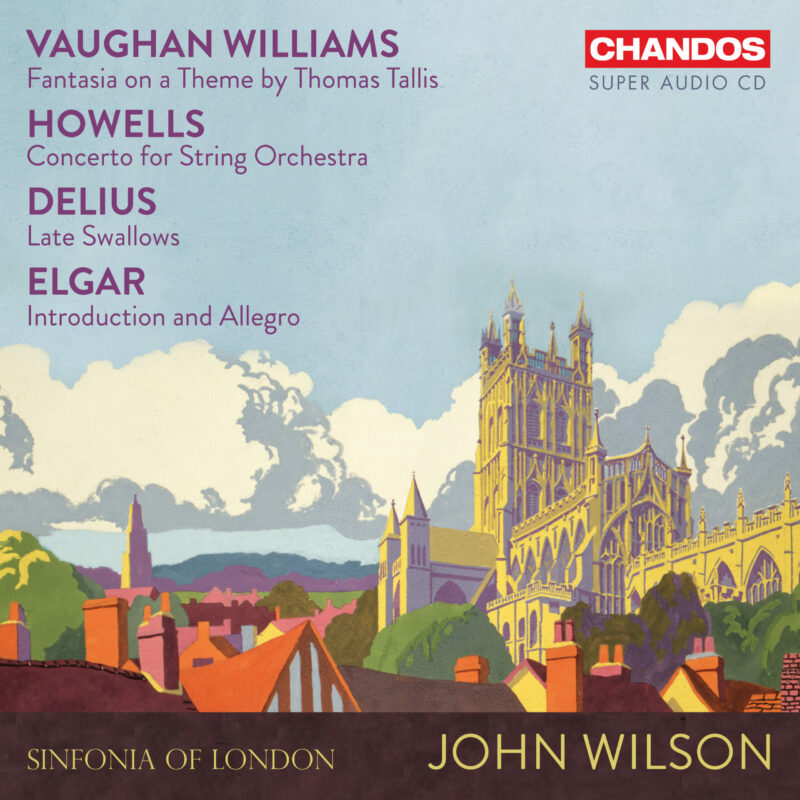
Vaughan Williams, Howells, Delius, Elgar
*BBC MUSIC MAGAZINE 2024 ‘ORCHESTRAL AWARD’ WINNER AND ‘RECORDING OF THE YEAR’*
*GRAMOPHONE CLASSICAL MUSIC AWARD SHORTLIST 2023 | ORCHESTRAL*
This album from Sinfonia of London and John Wilson features two of the greatest British works for string orchestra: Ralph Vaughan Williams’s Fantasia on a Theme by Thomas Tallis, and Sir Edward Elgar’s Introduction and Allegro.
Elgar’s ground-breaking work, commissioned for the newly formed London Symphony Orchestra and premièred in 1905, is inspired by the baroque concerto grosso, and features a solo string quartet contrasted with the full symphonic string section. These orchestral forces were also adopted by Herbert Howells in his Concerto for String Orchestra, from 1938.
Delius’s Late Swallows is the only piece not originally composed for string orchestra; it was arranged (from the slow movement of Delius’s String Quartet) by his amanuensis, Eric Fenby.
Recorded in Surround Sound and available as a Hybrid SACD, and digitally in Spatial Audio.
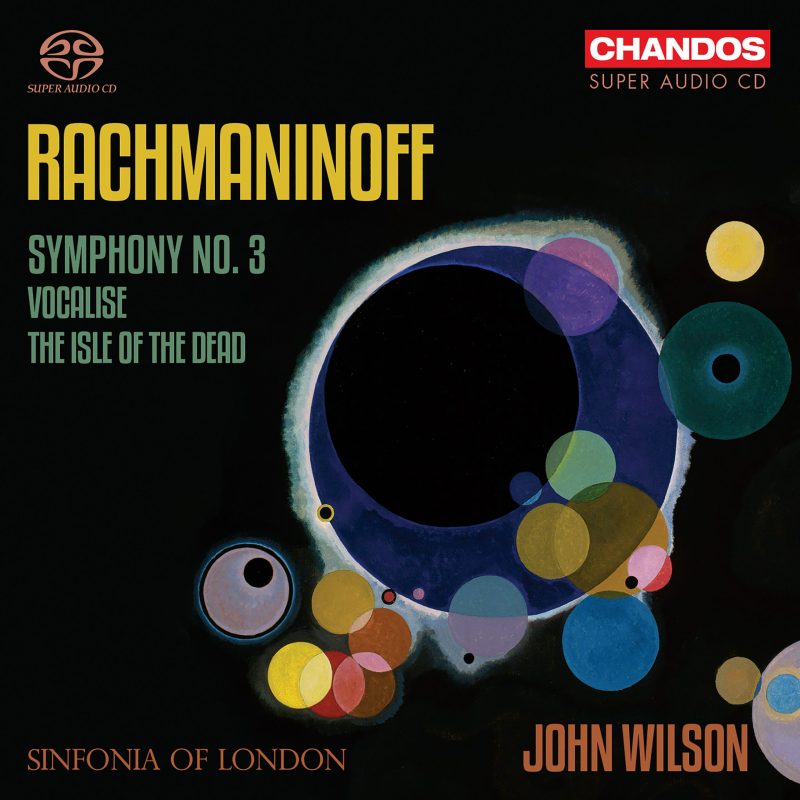
Rachmaninoff – Symphony No.3
*GRAMOPHONE CLASSICAL MUSIC AWARD 2023 SHORTLIST | ORCHESTRAL*
The first release in the Sinfonia of London Rachmaninoff series opens with the tone poem The Isle of the Dead. Composed in Dresden in 1908 – 09, it was inspired by the 1880 painting of that name by the Swiss symbolist artist Arnold Böcklin. The painting depicts a ferryman rowing a coffin towards the Isle of the Dead, and Rachmaninoff, who sets an unusual five beats to the bar, captures the atmosphere and the motion of oars in the water in the most extraordinary detail.
Dedicated to the outstanding Ukrainian-born coloratura soprano Antonina Vasilyevna Nezhdanova, the much-loved Vocalise was first performed, by her with the composer, in January 1916. After creating a version with orchestral accompaniment, Rachmaninoff then produced the version heard here, for orchestra alone.
Following the Russian revolution and his exile to the USA, the compositional output of Rachmaninoff declined dramatically. He toured extensively, in great demand both as a virtuoso performer and as a conductor, but struggled to incorporate ‘modern music’ into his compositional style. But in the mid 1930s he acquired a holiday villa in Lucerne, and surprised the world with the Third Symphony.
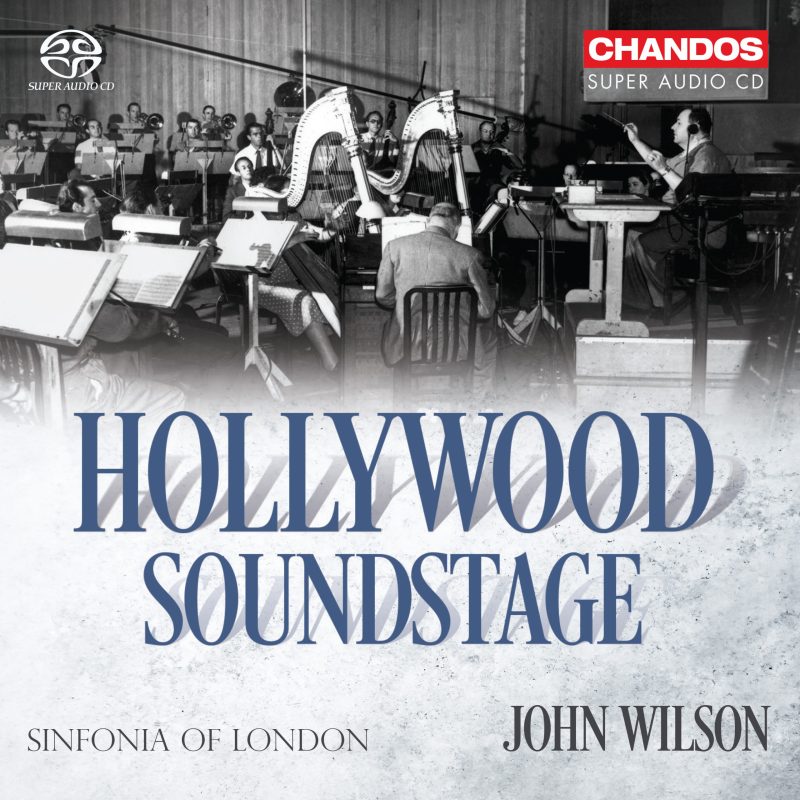
Hollywood Soundstage
Sinfonia of London and John Wilson present their latest album, celebrating the golden age of Hollywood.
An orchestra that originally rose to fame for its recording work in the 1950s, Sinfonia of London appeared in the credits of more than 300 films. The award-winning recording of Korngold’s Symphony in F sharp – which marked the orchestra’s relaunch under John Wilson in 2018 – is echoed here in the opening track, Korngold’s Overture from The Private Lives of Elizabeth and Essex, illustrating the composer’s rich, chromatic soundworld that set the blueprint for the countless Hollywood composers who followed.
Among other joys on this album are Herbert Stothart’s suite from his Oscar-winning score for The Wizard of Oz, Max Steiner’s Now, Voyager and Franz Waxman’s Rebecca, here receiving its premier recording in the original orchestration. Much-loved pieces by David Raskin (Laura), Frederick Loewe (My Fair Lady), Johnny Mandel (The Sandpiper) and Alfred Newman (How to Marry a Millionaire) complete this rewarding programme.
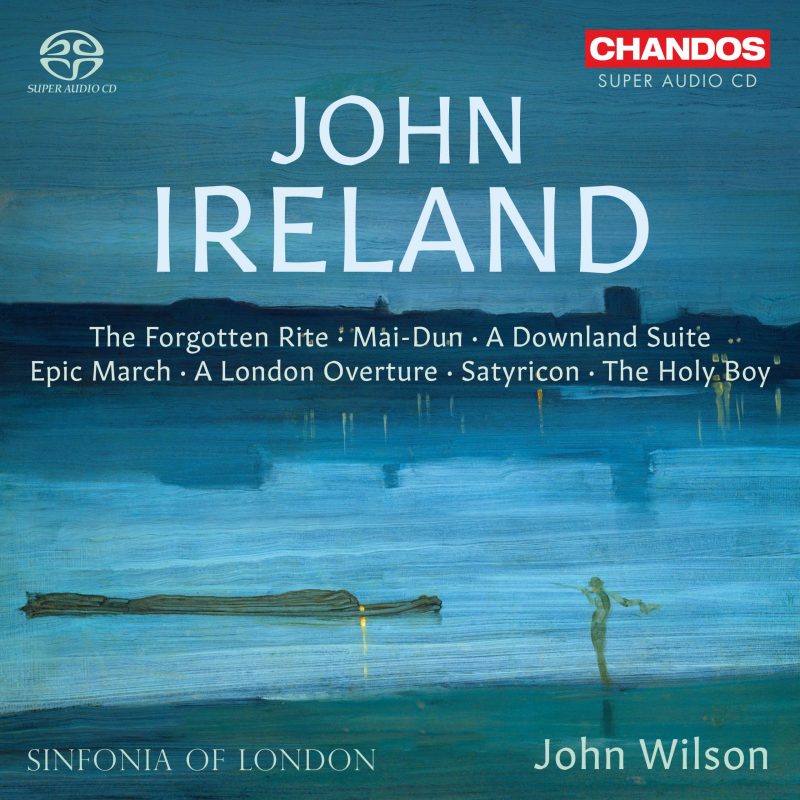
John Ireland
John Ireland was something of a child prodigy, entering the Royal College of Music at the age of fourteen. There he studied piano, organ and composition (under Charles Villiers Stanford). He quickly progressed to significant positions as an organist, whilst continuing to pursue his interests as a composer. The Forgotten Rite, from 1913, is one of his earliest orchestral compositions, and was premièred by Sir Henry Wood at the Queen’s Hall. The symphonic rhapsody Mai-Dun was inspired by the Dorset countryside – Thomas Hardy country – a landscape that exerted a lifelong influence on Ireland. While it was commissioned for the national Brass Band Championships in 1932, Ireland later arranged the central two movements of A Downland Suite for strings. The first and last movements were later arranged by his pupil Geoffrey Bush. The overture Satyricon was one of Ireland’s final large-scale works, and is based upon texts by the Roman writer Gaius (or, in some sources, Titus) Petronius Arbiter, a courtier of Nero. A London Overture and the Epic March were both commissioned by the BBC – the latter as a moralebooster during World War II. It was during this period that Ireland orchestrated The Holy Boy – a piano piece composed on Christmas Day in 1913. John Wilson and Sinfonia of London present these works with care and conviction, revealing the great quality of this unjustly neglected composer.
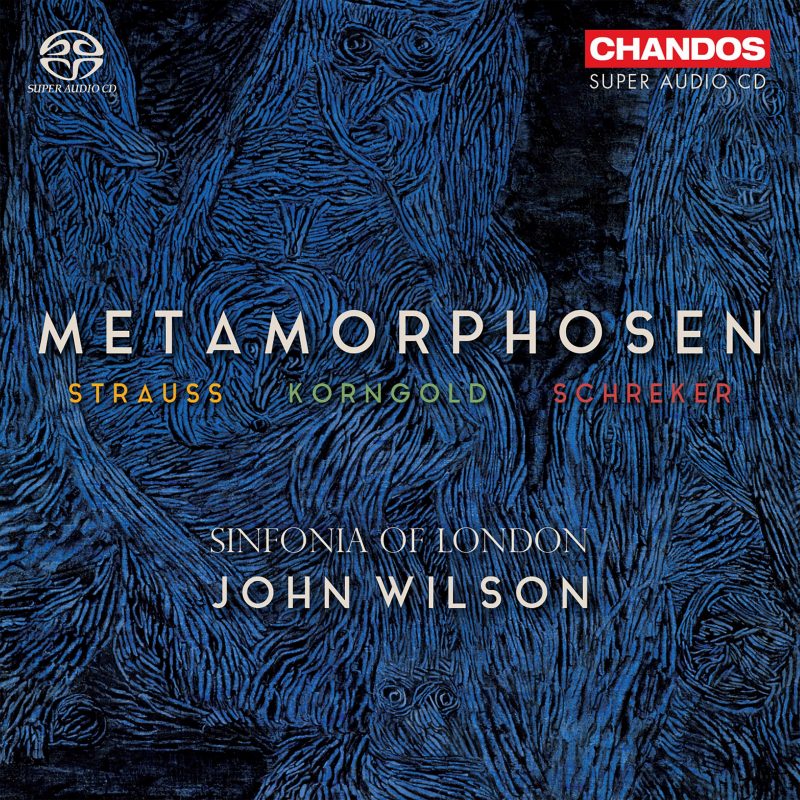
Metamorphosen
*GRAMOPHONE CLASSICAL MUSIC AWARD NOMINEE 2022 | ORCHESTRAL*
Sinfonia of London and John Wilson turn to Germany and three outstanding works for string orchestra.
Franz Schreker’s Intermezzo, the oldest piece here, was composed in 1900, before Schreker’s rise to fame in the opera houses of Germany and Austria, but shows strong indications of what was to follow. Korngold composed the Symphonische Serenade following his return to Vienna from Hollywood after the Second World War. It was composed shortly before he wrote his Symphony in F sharp, the piece which marked Sinfonia of London’s relaunch under John Wilson, and won a BBC Music Magazine Award 2020. Korngold effortlessly conjures a vivid range of colours and textures from his large forces (32 violins, 12 violas, 12 cellos, and 8 basses) in a work that explores the virtuosity of the players to the full.
Composed in 1945, as a reaction to the horrors of the war, and the desecration of German culture, Richard Strauss’s Metamorphosen for 23 solo strings seems to look backwards to the German romantic tradition – a trait even more evident in his Four Last Songs, of 1948. The moving final passage, marked ‘In Memoriam’, leaves the listener to contemplate in silence.
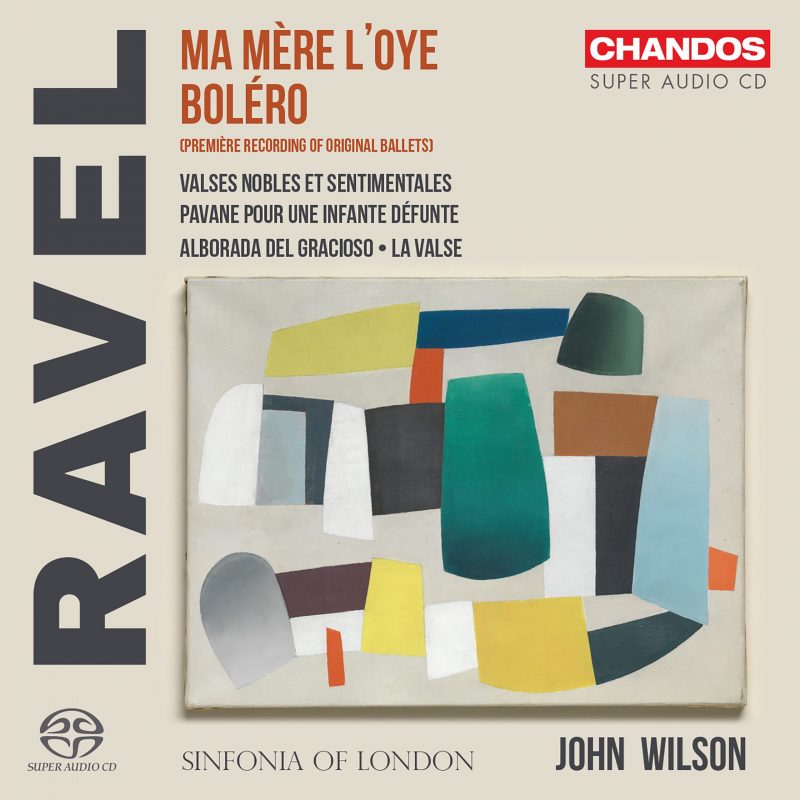
Ravel – Orchestral works
*WINNER OF GRAMOPHONE CLASSICAL MUSIC AWARD 2022 | SPATIAL AUDIO*
Following the orchestra’s acclaimed live debut at the BBC Proms 2021, John Wilson and Sinfonia of London release a studio album featuring the music of French composer and master orchestrator Maurice Ravel.
This album is notable for being the premiere recording of the complete original ballets of both Boléro and Ma Mère l’Oye (Mother Goose), in a new edition by François Dru, general editor of the Ravel Edition. Ravel’s dark and compelling La Valse, which featured in the orchestra’s televised 2021 BBC Prom performance, opens the disc. Ravel’s orchestrations of his own piano works complete the programme: Valse nobles et sentimentales, Pavane pour une infante défunte, and Alborada del gracioso, with its colourful illustration of Spanish sounds and culture.
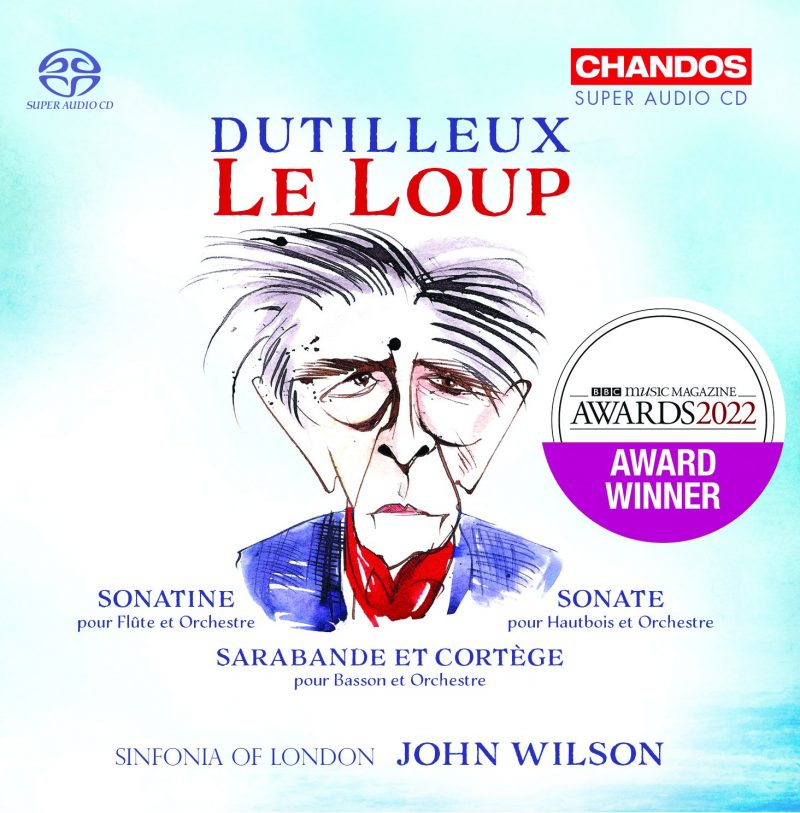
Dutilleux – Le Loup
*WINNER OF BBC MUSIC MAGAZINE ORCHESTRAL AWARD 2022*
Following the success of English Music for Strings, Sinfonia of London turns its attention to the music of Henri Dutilleux. His ballet Le Loup was composed as a commission for Roland Petit’s dance company and premiered in Paris in March 1953. Rarely recorded – this is the first recording by a non-French orchestra – the work unfolds in three tableaux and tells a convoluted tale of a bridegroom who jilts his bride (to run away with a gypsy) by persuading her that he has been changed into a wolf. Over time she discovers that the wolf is real, but her feelings turn from terror to love and when the alarmed villagers hunt the wolf, she defends him and dies at his side.
The album is completed by three world premier recordings of new orchestrations (by Kenneth Hesketh) of wind solos written for the Paris Conservatoire in the 1940s. Both the Sarabande et Cortege and Sonate pour hautbois are virtuosic tours de force for their soloists, as is the Sonatine pour flute, which displays the lyricism, agility, and sparkling incisive qualities of the flue in what became Dutilleux’s most-performed work.
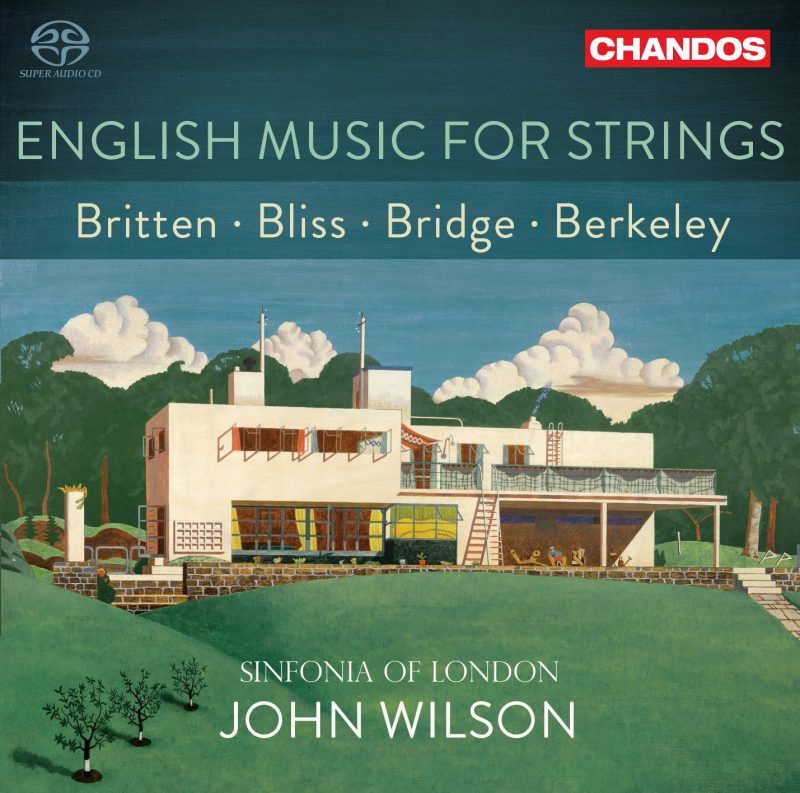
English Music for Strings
*GRAMOPHONE CLASSICAL MUSIC AWARD NOMINEE 2021 | ORCHESTRAL*
English Music for Strings, featuring music by Benjamin Britten, Frank Bridge, Sir Lennox Berkeley and Sir Arthur Bliss, is the fourth recording from Sinfonia of London with John Wilson. The release pays homage to Sir John Barbirolli’s revered 1963 disc, English String Music.
During the 1930s, Bliss, Britten, and Berkeley all contributed major works to the repertoire for string orchestra, following in the footsteps of Elgar and Vaughan Williams. They are joined on this album by Frank Bridge, whose Lament was composed during the First World War.
Bliss composed Music for Strings after he had completed the film score for Korda’s Things to Come, driven by his desire to compose a piece of ‘pure music’, expressing his own ideas rather than those of others. Commissioned in May 1937 by Boyd Neel for the Salzburg Festival that summer, Britten’s Variations on a Theme of Frank Bridge was composed at great speed, and helped to establish the young composer’s international reputation. Dedicated to his teacher, Frank Bridge, the theme is taken from the second of Bridge’s Three Idylls for string quartet.
Lennox Berkeley composed his Serenade for Strings while at Snape Maltings in Suffolk, where he was living with Britten in 1938/39. By the time of its completion, the nation was at war and the music seems to reflect the composer’s anxious mood as the world faced an uncertain future.
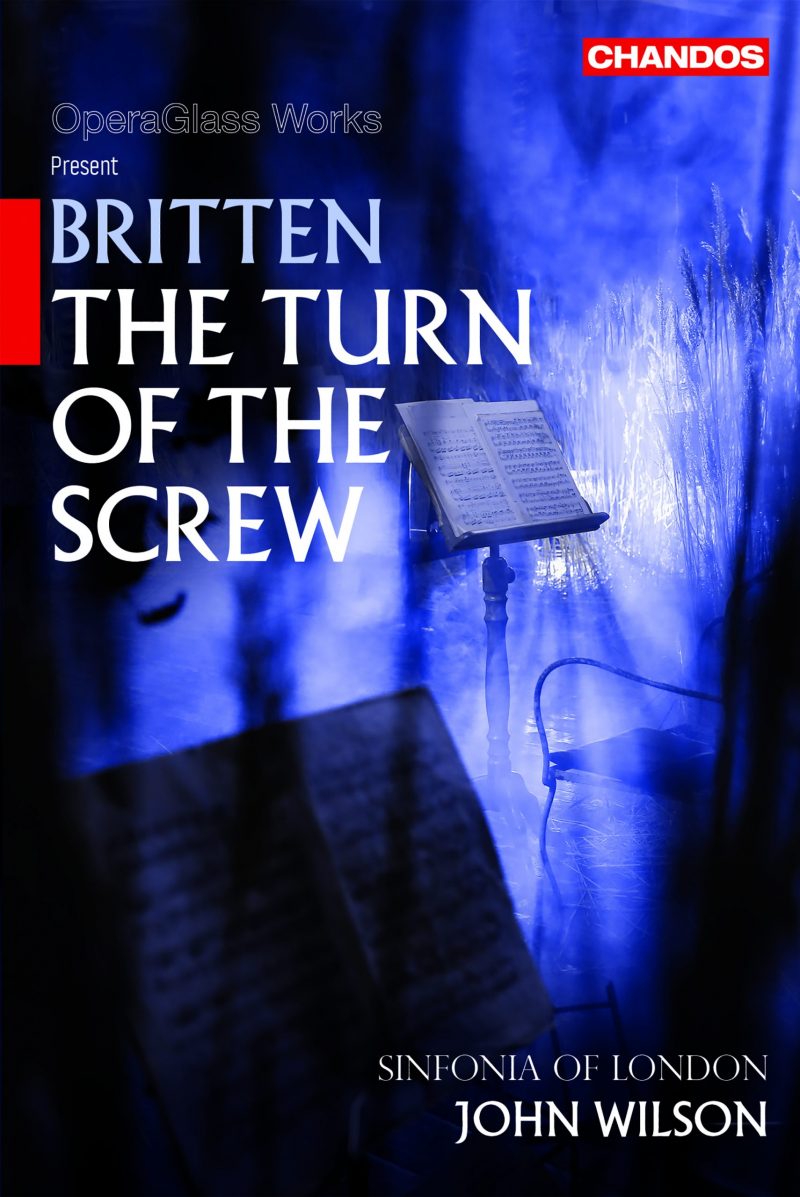
Britten – The Turn of the Screw
*WINNER OF THE CRITICS CIRCLE AWARD FOR OUTSTANDING ACHIEVEMENT*
Henry James’s novella The Turn of the Screw has become notorious as at once the most stylish and elusively ambiguous of all nineteenth-century ghost stories. In June 1932, the eighteen-year-old Benjamin Britten heard a radio adaptation of James’s story and noted in his diary that it was ‘wonderful, impressive but terribly eerie & scary’. He read the novella for himself in January the following year, telling his diary that he still found it ‘glorious & eerie’ and judging it to be an ‘incredible masterpiece’.
His subsequent operatic setting is unequivocally a masterpiece, and is here seen in a first-class production made for television with an outstanding cast led by Robert Murray and Rhian Lois, accompanied by Sinfonia of London, and conducted by John Wilson. Opera production is by Dominic Best, Selina Cadell and Eliza Thompson. Originally planned as a run of live performances, subsequently cancelled because of the Covid-19 pandemic, the production was quickly transformed into a film for television with spectacular results.
‘Filmed at Wilton’s Music Hall and available online, a staging of Britten’s opera has been reimagined as a very effective film, with superb performances, and John Wilson alert to the score’s beauty and terror.’ **** Tim Ashley, The Guardian.
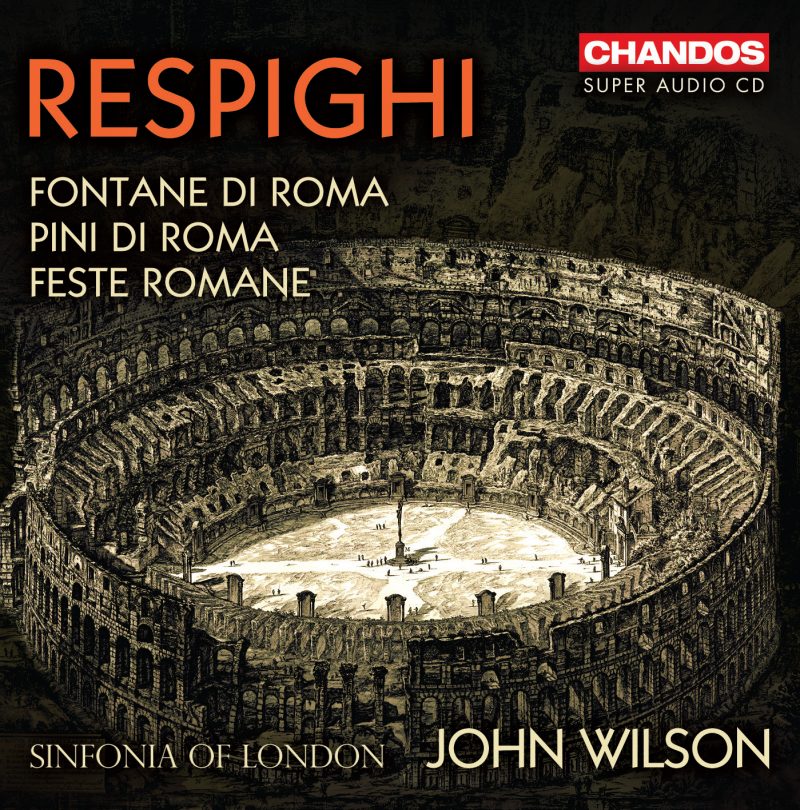
Respighi – Roman Trilogy
*WINNER OF BBC MUSIC MAGAZINE AWARD 2021*
Following widespread critical acclaim for their first two recordings, including a BBC Music Magazine Award 2020, John Wilson and Sinfonia of London turn their artistry to Respighi’s Roman Trilogy for their third release.
With its dynamic score calling for a vast array of instruments, including every imaginable piece of percussion plus four-handed piano, organ, mandolin and even a recorded nightingale, Respighi’s outstandingly evocative Roman Trilogy – Fountains of Rome, Pines of Rome and Roman Festivals – is one of the most lavish and exuberant works in the repertoire, all captured on this disc in gleaming Chandos sound.
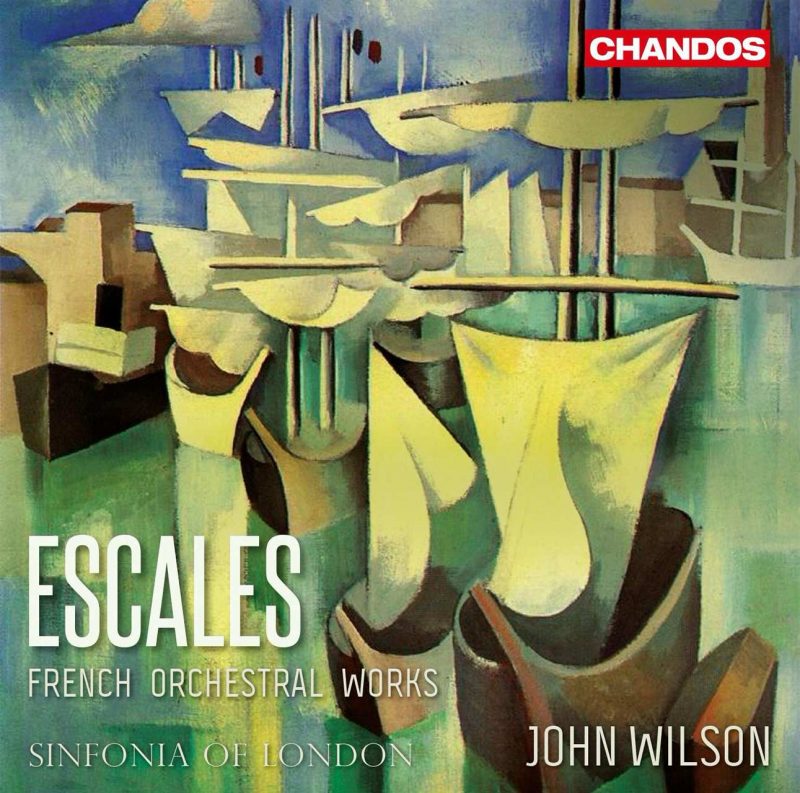
Escales – French Orchestral Works
The second recording from Sinfonia of London explores the unique sound world of French orchestral music of the late nineteenth and early twentieth centuries.
The programme juxtaposes well-known favourites, such as Debussy’s Prélude à l’après-midi d’un faune and Massenet’s Méditation from Thaïs with pieces far more rarely heard, for example Duruflé’s Trois Danses and Saint-Saëns’ Le Rouet d’Omphale.
Evoking the ‘exoticism’ of Spain or North Africa, as was the fashion in French music of this era, all these works share the intricate, detailed orchestration that defines the Impressionist style.
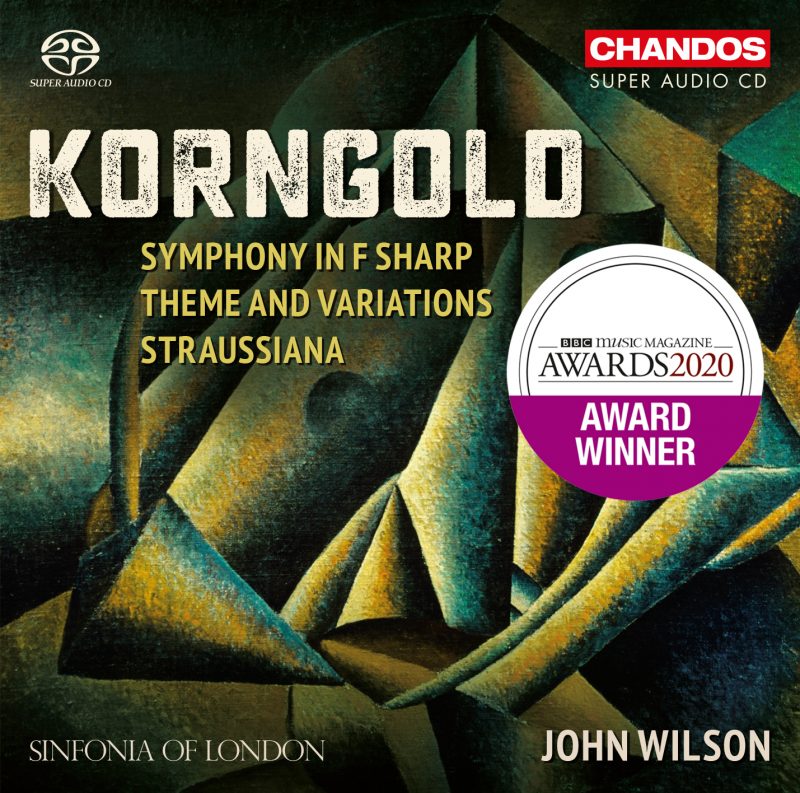
Korngold – Symphony in F sharp
*WINNER OF BBC MUSIC MAGAZINE AWARD 2020*
The disc which marked the relaunch of Sinfonia of London in 2018 features three works by Korngold. Born in Brünn, Austria-Hungary, and as a pianist and composer Korngold was a child prodigy. Both Mahler and Strauss were impressed by the young musician, and recommended he study with Zemlinsky rather than attending music conservatory. In 1934 Korngold emigrated with his family to the USA, where he went on to revolutionise the sound of Hollywood, composing scores for films such as The Sea Hawk, Captain Blood, and The Adventures of Robin Hood.
While he is still most famous as a film composer, over the last twenty years his reputation as a concert composer has been completely re-evaluated. His only Symphony, composed between 1947 and 1952, was dedicated to the memory of Franklin Delano Roosevelt. But the premiere in Vienna 1954 was under-rehearsed and not a success, and the work remained neglected until Rudolph Kempe came across a set of score and parts in Munich and resurrected it.
Theme and Variations and Straussiana were both commissioned by the Association of American School Orchestras, but Korngold makes no concessions to youth in his writing. Straussiana also reflects his lifelong love of the music of Johan Strauss II.
